My friend since 1994, Carla Fischer, posted a picture of a GE Appliances Blender on LinkedIn with the caption: My parents were given this GE blender 58 years ago as a wedding gift. Today, it made my protein shake like a charm. As we lay Jack Welch to rest this week, I can’t help but think…They just don’t make ’em like they used to. Rest well, sir. You were a force, indeed. #JFWAlumni #changinglives Later, I found a GE fan in an antique store near Groton, CT. They don’t make them like that anymore, indeed.
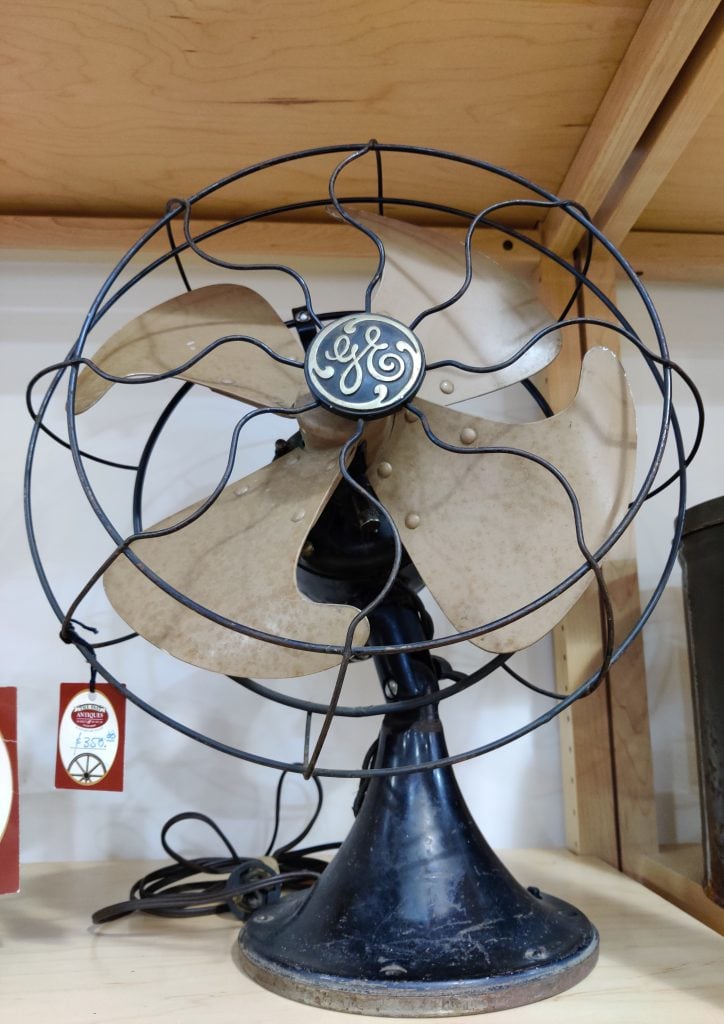
Jack Welch passed away at the age of 84, on March 1, 2020. I decided to title my podcast ‘Built to Last’, after Collins & Porras’s book by that title which I consider to be one of the best corporate (or other) leadership books that I have ever read. Jack Welch was ‘built to last’. New York Times has an excellent article on him from which I quote: The company’s revenue jumped nearly fivefold, to $130 billion, during Mr. Welch’s tenure, while the value of its shares on the stock market soared from $14 billion to more than $410 billion. https://www.nytimes.com/2020/03/02/business/jack-welch-died.html
For a corporate head, that is an accolade enough, but this podcast is not about his corporate success but his ability to touch lives and leave behind memories. I believe that in the final analysis what sets you apart is your ability to leave behind memories. I want to share with you, my memories of Jack Welch and his impact as my tribute to a great man.
My introduction to GE was in 1994 through my dear friend Pratik Roy who was head of training for GE India. He invited me to teach a Team Building session at the LC (Leadership Course), a course that GE Crotonville used to run all over the world. This was a very important and lucky break for me because I had just started my consulting and training company, Yawar Baig & Associates in Bangalore in the same year and needed business. To get not only business but at GE was a huge feather in my cap for which I am most grateful to Pratik. The course was in Goa and had participants from GE Asia as well as India. We had Chinese and Korean participants as well as Indians. At the end of the course the Chinese participants came to me and said, “We like you so much that we have given you a name. This is our tradition for our teachers. Would you accept that?” I was honored and very touched. The name they gave me was Bei-Ya-Shi. The LC, was an education for me in cross-cultural dynamics in training. The trainer team consisted of Carla Fischer (LC Anchor), Russ Merck, Jon Barb and me. Bonnie McIvor, the Head of Training for GE Asia was also there as an observer and we became very good friends.
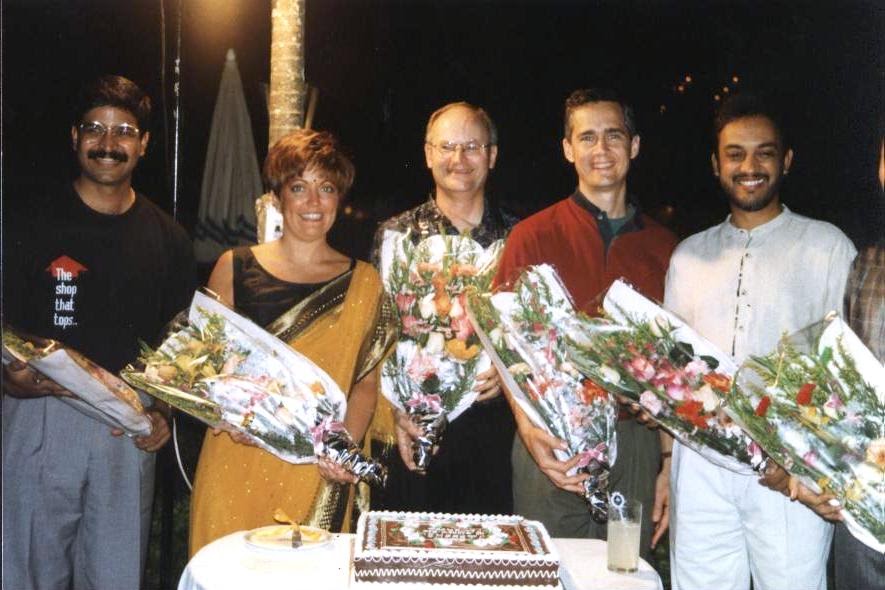
On an interesting side note, on the third day of the course, Bonnie, asked me if I would be willing to join GE as a member of the GE Asia Training team. I told her that I had just become an entrepreneur that year after 16 years in the corporate world and though GE would be the No. 1 organization on my list if I were planning to get back to the corporate world, I was not sure if I wanted to do that just then. She asked me if I would be willing to be formally interviewed and if that went well, she would make me an offer and then I could decide. I was more than happy to do that because I thought it would be fun and instructive as well as a privilege to be interviewed by the Head of Training for GE Asia. The interview happened the next day and it was a ‘Behavioural Interview’; a technique which I learnt later and was one of the several training courses that I was certified to run for GE Crotonville. At the end of the interview, which lasted about two hours, Bonnie said to me, “I have no hesitation in offering you the job. Here is the letter with the terms.” I read the letter and was overwhelmed with the job offer. I could see her watching me carefully. I said to her, “Bonnie, I have no words to express my gratitude to you, but I don’t want to kill my entrepreneurial initiative so early after starting it.” She said to me, “I knew you would say that. I am disappointed but I am very happy for you. I was watching to see what you would say. I think you will do very well as an entrepreneur. Of course, we want you to work with GE and so you will. But if you are serious enough to turn down a GE job for your entrepreneurial venture, I can tell you that shows your passion for entrepreneurship. We will continue to use you as a member of our International Leadership Development Team at Crotonville.” I consider that to be one of the finest compliments that I have ever received. And so, it was done, and I have been a Crotonville Trainer ever since.
I hope this story was interesting, but it is not so much a story about me or Bonnie McIvor but about Jack Welch’s focus on developing leadership. In GE everyone in a leadership role was hunting for talent. One eye and one ear were always open to spot talented people who could grow into leadership roles. It is not for nothing that Collins & Porras, in their excellent book, “Built to Last”, call GE’s product, ‘not engineering products but leaders’. In GE, they said, ‘Leadership is stacked like cordwood.’ I bear witness that this was true in Jack Welch’s time. People searched for talent, nurtured it, went out of their way to help talented people perform at their peak and took great delight in others’ success. To give earlier GE leaders their due, this culture of nurturing leadership was not introduced by Jack. He was himself a beneficiary of this culture. But he reinforced and supported it enormously. One of the ways in which this was done was by encouraging dissent but insisting on clear, solution focused thinking. It didn’t matter if your solution was not perfect. What mattered was that you demonstrated application of mind. ‘Yes-men’ were not encouraged in GE and if you disagreed with your boss, you didn’t need to fear his wrath but instead may well get an accolade for your trouble, provided of course that you could demonstrate your sincerity and dedication and thoroughness in presenting your argument. Having said that, we were also taught how to disagree without being disagreeable. You asked for an opportunity to present your view. You did it with dignity, fairness, brevity and clarity. And if your boss still disagreed, you shut up. You didn’t argue with or embarrass him/her in public. In private you could go to him, once more. That’s it. This was not because what you had to say was unreasonable, but given the difference in levels, it is possible that the boss was privy to information which he couldn’t share with you and so couldn’t agree with you and couldn’t tell you why. You respected that and to do so meant that you could understand some of the dilemmas and difficulties of being a leader.
What was not appreciated (and you were told this in no uncertain terms) was if you had not invested enough in your input and couldn’t answer questions. That would be a very costly mistake in GE. We were teaching the NMDC in Atlanta at the Peachtree Resort. As part of the NMDC, teams of participants choose a business idea and present their business plan to a team of GE leaders who specially fly in for that session. In Atlanta, one of the teams didn’t do as thorough a job with their presentation as they were expected to do. One of the leaders in the review panel stopped the speaker in midsentence and said, “You guys have not done your homework. Remember, just because we don’t wear neckties, it doesn’t mean we are not serious.” It was delightful to see the team turning various shades of pink to match the peach blossom outside. But that was a very painful lesson for them to learn. In GE, leadership development was not restricted to the classroom or Crotonville. It was an everyday task for all leaders at all levels, which they took very seriously. The results showed.
At the LC in Goa, in addition to my team building session, I helped Carla with administering the MBTI as a result of which Carla suggested that GE would sponsor me to be certified on the instrument so that I could teach it in GE Crotonville courses. The interesting fact is that I was not even a GE employee and that for someone like me, entering the training world, to be sponsored to this certification was ‘gold’. I was free to use it for my work, no strings attached. I didn’t imagine that such things could happen. Yet Carla suggested it and it was done. That was my first exposure to Jack Welch’s stamp on GE with his philosophy of what he called the ‘Generosity Gene’. He said, ‘Leaders must take delight in seeing others succeed. Not feel resentful because someone else got a promotion or bonus you wanted to get. You must feel happy for them and help them to achieve it, if you are a leader.’ I’ve experienced this many times in GE since 1994.
In 1996, I was asked by the head of training at GE Medical Systems in Bangalore, George Varghese, if I would design and write up a course which if accepted would be taught as a Best Practice Course in GE. He wanted a course positioned between LC and NMDC. I designed a course which we called PDC (Professional Development Course – GE courses were pure gold but didn’t have fancy names) which was a three-day off-site residential course and it was a great success. We would start the day with Yoga which I taught and went through the day until it ended after dinner in a storytelling session around a campfire. I worked with Indira Achanta, Susan Morey and Mohan Raja all through the years that I taught this course. To design and teach my own course, branded as a GE course is a thrill that I am most grateful to George for. One more example of openness in leadership development and of a GE leader helping someone else to succeed.
Another big one was when Manab Bose became the Head of Training and HR at GE India. Manab called me and said, “GE has invited Dennis Encarnation of the Kennedy School of Business to talk about globalization. Would you be interested to attend the session?” That was like asking if I would be interested to accept a gold mine as a gift. Of course, I was interested. Manab then said to me, “The program is in Singapore. GE will pay for your ticket and hotel and full board. But we can’t pay you a fee to attend.” Fee to attend? I wanted to ask Manab to get real. I would have paid, to attend that course, let alone asking for a fee for it. Once again this was Jack Welch’s stamp on GE culture where the belief was, that the only way we could get products and services of the quality we wanted i.e. 6 Sigma, was by training and supporting our service providers. In almost every major Crotonville course that I taught, I almost always had a couple or more participants from GE business partner companies. All in the same spirit.
Dennis Encarnation’s profile says, ‘first joined Harvard University in 1982 as faculty of the Harvard Business School, later moving to the Harvard Kennedy School’s Center for Business and Government to launch the School’s first Asia Programs. Dennis Encarnation has devoted his professional life to the study and practice of globalization.’ His lecture in Singapore was over three days. On Day-1 one he spoke about business in the Americas. On the second day about Europe and Africa (very little about the latter). And on the last day about Asia. Reflecting on this amazing session, I can see how many of subsequent global developments were ‘foretold’ by Dennis Encarnation in that lecture. That is the hallmark of the scholar and expert and a measure of the depth of his research and his own value addition to the data by his interpretation. I have been very fortunate in my teachers. Dennis’ teaching style was unique. He didn’t use any audio-visual aids. Not even an overhead projector. At the front of the room were arrayed in a semicircle, eight flipchart boards with thick flipchart pads on them. Dennis would hold a thick chisel-tip marker in a ‘dagger stabbing’ grip in his fist in one hand and a mic in the other. And he would run from chart to chart and talk and write in huge letters as if slashing the flipcharts to shreds. He did that continuously with the same high energy for three days in a row. I don’t recommend this style of teaching, unless you are Dennis Encarnation. It worked for him. But then what he had to say was so interesting that if he had spoken while doing summersaults, people would have listened with rapt attention. I owe Manab and the GE culture which enabled me to benefit from this fantastic session.
My trip to be certified for MBTI was memorable. I landed at Dulles, Washington, DC after dark and got to my hotel. Next morning, I looked out of my window at the sunniest, brightest day that I had seen in a long time. I was so enthused with this sight that I simply couldn’t remain inside the room. I did remember that it was winter, so put on a long coat, but it was so sunny and lovely that I had to go out and breathe that air. I stepped out of the door and discovered gravity. One step into the parking lot and I was flat on my back. I had stepped on ‘black ice’ and both my feet flew up in the air and I slammed down on the tarmac like a landing fish. What saved me perhaps was a combination of the padding of the coat, my total surprise so that I didn’t try to save myself by putting out a hand to break my fall and the fact that this was in 1994 when I was 26 years younger than I am today. Somehow my head also didn’t hit the ground and all that I gained was a bruised backside and ego. And a very healthy respect for black ice. That was a very striking welcome to America.
I was certified in MBTI (Myers-Briggs Type Indicator) at Otto Kroeger Associates in Fairfax, Virginia at the end of a grueling five-day train-the-trainer course and a written exam where the passing mark was 90%. That was Carla’s doing and when I qualified, she gifted me a set of MBTI teaching slides with graphics that she had hand drawn. I was so honored and touched by her gesture of taking pleasure in my success, having facilitated it herself. I still have and use those slides, which I converted to a digital format.
On my return to India, I taught the LC and then later, CELC for GE India in multiple locations including Singapore. I got certified on Facilitative Leadership Skills Workshop (FLSW) and the Behavioral Interviewing Workshop and taught those also. After learning Behavioral Interviewing, I was invited by GE India to interview senior management candidates and give a report to Manab Bose, VP HR for them to decide if they wanted to take it further. I had created a template which I used to report on the candidate. If GE taught you something, they ensured that you used it for them. Great practice and for me as a consultant, it was all good business in my favorite company. While at Crotonville, I attended a wonderful training session on Presentation Skills taught by Bill Lane, who was Jack Welch’s speech writer and presentation skills trainer. Hardly anyone who could teach that course better. The following year, 1995, GE started its foray into 6 Sigma which Jack drove directly and very powerfully. At the Boca Raton meeting that year, speaking to his Top Management Team of VPs and Country Heads, he made statements like, “I will not believe that you have sponsored someone for Black Belt training until you fill his vacancy.” “Yes, it is true that you have a choice, not to sponsor someone for Black Belt training but that will be a career threatening choice.” It was very clear where the future of GE leaders lay as far as 6 Sigma was concerned. To recall Mikel Harry’s quote: ‘If you want to see what someone values, see what they measure’; it was clear to everyone what Jack Welch’s GE valued. And though I sometimes heard people referring to 6 Sigma as ‘sick Sigma’, there was total commitment behind the initiative. If I recall the numbers correctly, GE earmarked $500 million in 1995 over the next five years for 6 Sigma implementation. That was Jack Welch’s style; if you want to do something, put everything you have behind it. All the effort, money, people and passion it needs. Halfhearted, tentative efforts are for people who were not serious about winning. Winners commit. Commitment is the line between wanting and doing. Action was the signature of Jack.
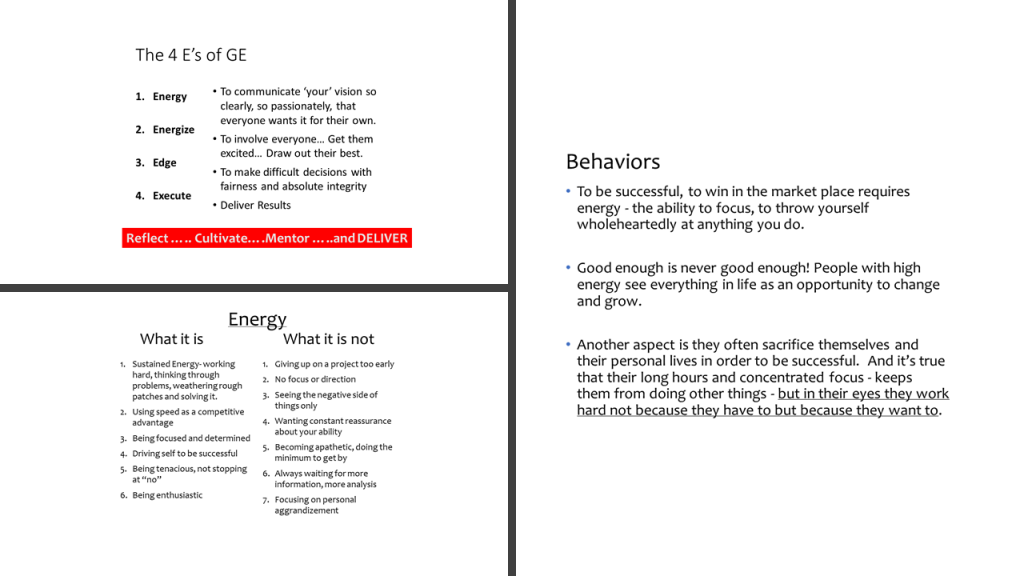
If there were two things that were the hallmark of Jack, they were his focus and commitment to values and his hatred for bureaucracy. In GE we used to say, “Why values? Because values drive behavior and behavior drives results.” We used to talk about the 4-E’s of GE. Energy, Energizer, Edge and Execute. It is beyond the scope of this article to describe these in detail but what was very valuable learning for me was how GE approached these. When we taught the 4-Es class, we spoke about what each E was and wasn’t. That was a level of clarity which set apart GE’s approach to Core Values. Everyone speaks about Core Values. But almost nobody drills down deep enough to clearly specify what that means and even more importantly what it does not mean. And then go further to specify behaviors that reflect the two. This has huge implications on implementing the values and even more importantly on measuring compliance. Without this clarity about desired behaviors, you can’t have metrics and without metrics you can neither know what is happening nor guarantee it. In GE you could see people living these values. It didn’t matter whether you were employed by GE or not. I was never a GE employee. But if you worked at GE, you lived these values. I did and still do. Not because they are GE values, but because they add value to me, and I love living by them. I think that is the final test of any value – do people who try to live by it, benefit from it? Do they feel that benefit? Do they value the value – if you know what I mean. Living GE values is more about me than about GE. I am sure Jack would have been delighted to know this. It means he did his job well.
Jack Welch took over as the Chairman of GE in 1982 and the first thing he did was to get rid of all non-core businesses. It got him a level of notoriety, but it worked magic with turning around a company which was already doing well and converting it into a byword in American business. His formula was, ‘Be No. 1 or No. 2 in the world in that business or get out.’ I think that is a brilliant philosophy for anyone. Yes, it was hard on many people but that brings to the fore another of Jack’s favorite maxims about the importance of Edge. The ability to take the tough calls with honesty. It is not about being cruel. It is about being honest. Kindness that allows poor quality or output is really cruelty because you punish those who deliver quality and high output. It is the surest and fastest way to ruin and to retaining losers and losing winners, that I know. To bring about change fast Jack Welch introduced ‘Work-Out™’ and Change Acceleration Process (CAP). In Crotonville there is an amphitheater called ‘The Pit’. That was the stage for ‘Work-Out™’ sessions, both teaching sessions as well as many a time, real Work-Out™ sessions of business teams. The purpose of Work-Out™ was to cut out the bureaucracy. To paraphrase him, Jack would say in effect, ‘It makes no sense to get talented people and then tie them down with twenty rules written by petty minded individuals which frustrate them and spend their energy in coping. Cut out the layers and cut out the rules.’ You get it? But most people outside GE still don’t get it. In a Work-Out™ session the business leader who is the key decision maker would stand in the center of the circle of his people and they would put to him the big change idea that they wanted to do. The leader would listen in silence and then respond. His response, and this was the ‘secret’ of Jack Welch’s strategy to cut the bureaucracy, could only be one of three things: Yes, Need more information, or No. If it was No, he had to give reasons. This was a unique session where anyone of that team, irrespective of rank could directly talk to the topmost manager and expect to get a response. There are many stories of Work-Out™ success but I won’t mention them here. I am sure all my friends at GE can think of at least one that they were involved in. GE was very serious about cutting out bureaucracy and of leveling with people. GE is the only company I know which was as close to being democratic as a corporate organization can be. In GE we had a process called NMA (New Manager Assimilation). In this process any new manager is given about three weeks in his new role. Then his direct reports are asked to give feedback about his style of leadership and their experience of it, anonymously which is collected either by an HR person or an external consultant. This feedback is given to him and then he has a meeting with his direct reports who gave the feedback and responds to them. He doesn’t know who said what but knows that it came from that group. In this meeting he can either promise to change some things that his people find difficult to deal with or he can tell them the reason for that and say that he can’t change that style. In my experience, no matter what he does or doesn’t, the whole exercise results in creating openness and leveling which is very good to build credibility. Difficult issues, if spoken about openly cease to be so difficult and people can make a genuine effort to change themselves.
Jack Welch’s commitment to GE values was total to the point of being cult-like. Collins & Porras mention cult-like cultures as being one of the key ingredients of highly successful corporations. They said that working there was not necessarily pleasant or good for everyone. Only those who believed in the culture and enjoyed living by it, found the atmosphere stimulating and satisfying. The ‘secret’ lay in the degree to which you believed in and lived by the culture. To thrive in a culture like GE (Walmart, Merck and others are also mentioned in Built to Last), you needed to be a ‘Believer’. There was no place for those who were lukewarm in their belief. The foundation of GE culture was integrity. There was no compromise with integrity. It didn’t matter where you were located. You could be in a country that was corrupt but you as a GE person couldn’t succumb to that, no matter what the cost. Stories of employees who stood for integrity were applauded and publicized. Jack Welch made statements like, “If a person doesn’t deliver the numbers, give him one more chance. One more only but give it to him. But if a person compromises integrity to get the numbers, hunt him down and axe him out.” Over the years, I have seen some GE people go against this value and both they and GE suffered. Welch was right. Integrity is like pregnancy. You are or you are not. You can’t be slightly pregnant. You have integrity or you don’t. Integrity is not negotiable. That above all else is the reason I think of Jack Welch with respect. Not for the numbers, but for the way in which he got them.
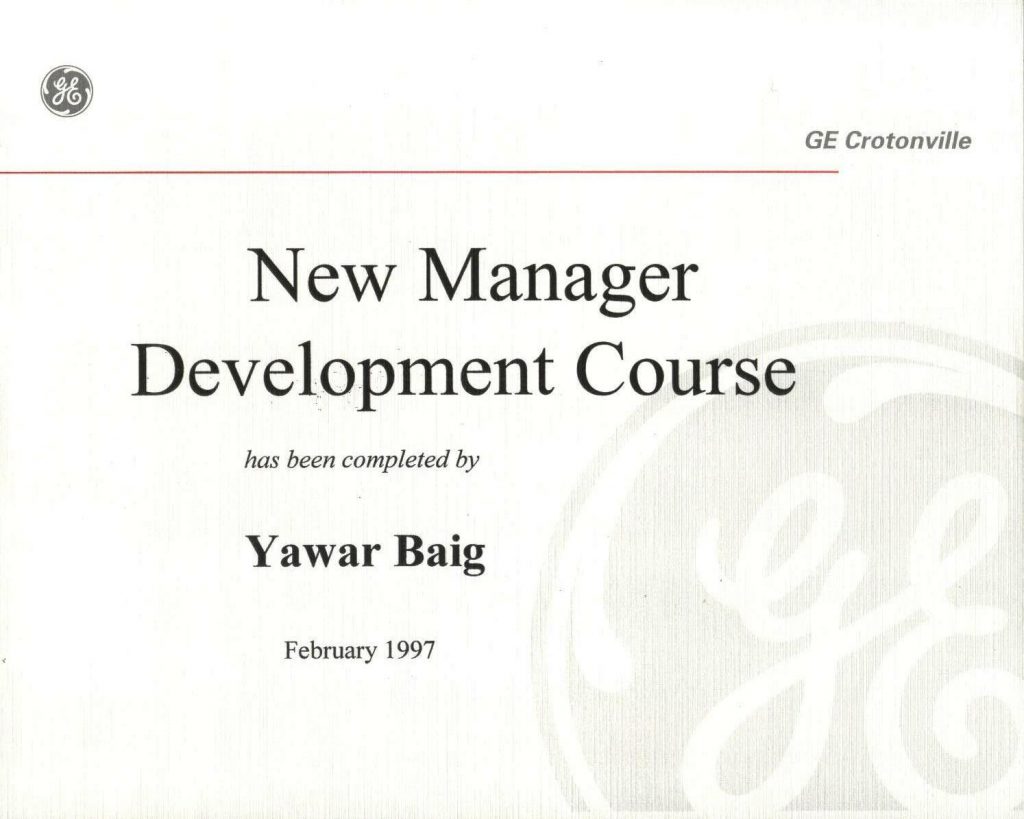
For the last of my stories, I was invited in 1997 to Crotonville to audit and be certified on a GE flagship course called NMDC (New Manager’s Development Course). I landed at JFK airport and had a limousine waiting for me. We drove to Crotonville and as we neared the final turn off into the driveway, the limo driver called the Front Desk on his car phone. As we drove up to the porch of the hotel in Crotonville, I was met by a young lady at the foot of the stairway. She walked me up and I signed a card at the reception and then she walked me to my room. The room was huge, with an attached bathroom to match. She opened the fridge and said to me, “Everything here is for you. Please feel free to eat and drink any of these things. The stock is replenished daily. If you need anything else, please call us at the Front Desk and it will be sent up to you. The phone is for your use. It is an international line and you can call anywhere in the world. Everything is paid for, so please feel free to call.” I made one call, to my wife in India to tell her that I had arrived safely. As I said, I was getting a taste of what GE meant about walking the talk. The next day, I met my friend Carla Fischer who was my anchor person at Crotonville. I told her about my reception the previous night and how much I appreciated the out-of-the-way courtesy. She simply said, “Yawar, we value our teachers.” Over the decades that I have spent with GE and having taught over five thousand GE employees in many countries, one thing that never changed was the way GE treats its teachers. It is a pleasure and privilege to teach at GE and money is the last of the reasons I do it.
The NMDC began next morning. I am not going into any details of the course here. But on the last day, we heard the thump of a helicopter rotor. A twin-rotor corporate helicopter landed and Jack Welch stepped out. We knew he was coming and that he would address this class but still to actually see the man in flesh was something I recall to this day. He stepped out of the helicopter with his coat on his arm and his briefcase in the other hand. No reception committees, nobody running interference ahead of him or hovering behind him. Just Jack Welch and his bag. He walked into the facility, hung up his coat and spoke to the class, sitting on the edge of the table. This was the last session for the day and then we all went across to the restaurant for cocktails with the Chairman. I was introduced to him, shook his hand and didn’t wash my hand for the rest of the day, so that some of Jack Welch would rub off on me. This is another story of my initiation into American culture which I found to be very different from the feudal corporate culture in India.
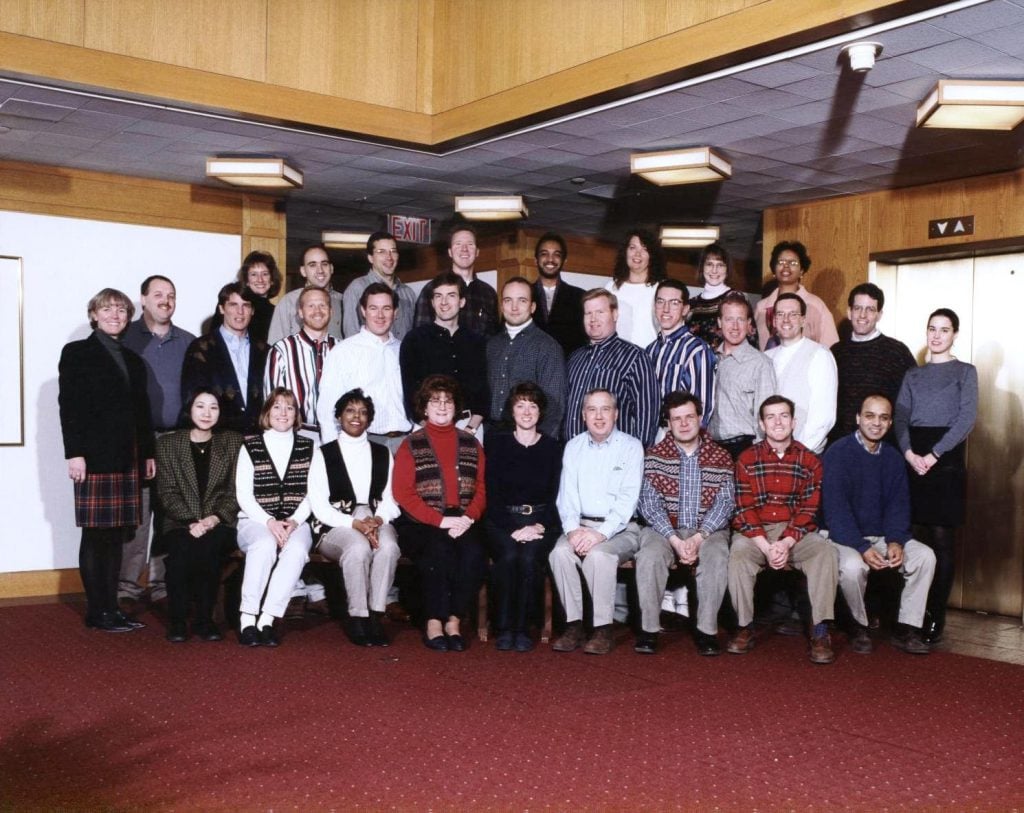
It was a blustery cold wet night and Jack’s pilot decided that it was not safe to fly back to the city, so Jack stayed the night at Crotonville. I asked Carla, “Where is he staying?” She looked surprised and said, “In the same hotel that you are staying.” I asked, “O! Is there a Chairman’s suite in the hotel?” She laughed and said, “He will be in a room exactly like yours, maybe even next to yours. All our rooms are Chairman quality.” And they were. As I said, a man is remembered for the memories he leaves behind. Jack Welch left many with many people across the world. All of us, sorry to see him go. The end of an era in truth.
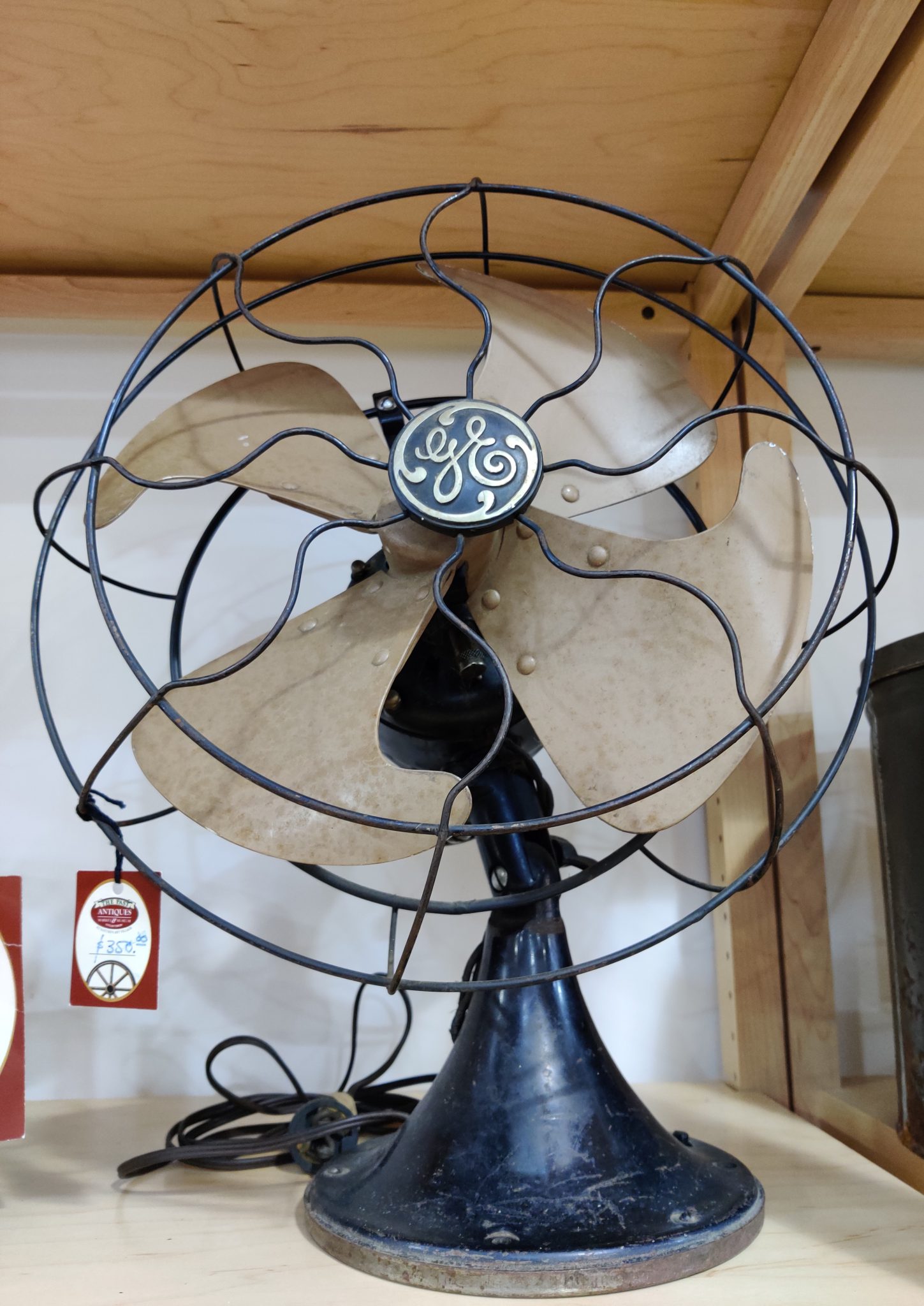
Yes indeed it is sad to see JW go! Though your article is very long, I read it completely as I was also associated with GE by way of Acquisitions, during my days with YBA Kanoo in Bahrain. GE acquired Grace Dearborn, a water treatment company and wanted to be either No.1 or No. 2 and they did it within the targeted period. We as Kanoo, being the agents were responsible to develop their water treatment business in Bahrain and we were very successful. Words from article – “Stories of employees who stood for integrity were applauded and publicized. Jack… Read more »
One of the specific point that touched my heart was and I think it’s the key to success. “That was Jack Welch’s style; if you want to do something, put everything you have behind it. All the effort, money, people and passion it needs. Halfhearted, tentative efforts are for people who were not serious about winning. Winners commit. Commitment is the line between wanting and doing. Action was the signature of Jack.”
Thank you for sharing your stories and for today’s podcast. Lessons of such magnanimity and character are the guidance mechanisms that steer me on my journey in life. The more the course corrections, the better the chances of staying on target. جزاك الله خيرا
My dear, dear friend…What a passionate and heartfelt tribute to Mr. Welch. In reading your words, I had no idea of the powerful and life-long impressions I was making as a 30-something OD professional. In fact, I might say I was just “doing my job.” Clearly, we get so wrapped up in doing what we do that we forget — especially in these roles — what great impact we have on the futures of others. We are truly blessed to have the opportunity every day to make a difference in someone’s life. I thank you for a lifetime of friendship… Read more »
Lovely article Yawar… And a wonderful glimpse into the ingredients that built an iconic co… Really enjoyed it…
Baig Saab, Brilliant article and your description, a real tribute to a man who deserves of having building a great institution.. Your podcast truly reflects your experience, respect and admiration to GE and Jack Welsh as well.
Dear Yawar Saab,
Very informative and interesting! It is a hearty tribute to Jack Welch.
Integrity really a matter in GE and I lived with it.
I proud to be a GE employee.
Rajeevan
I love you Sheik. Duas. ‘””Leaders must take delight in seeing others succeed. Not feel resentful because someone else got a promotion or bonus you wanted to get. You must feel happy for them and help them to achieve it, if you are a leader.’””” I had stepped on ‘black ice’ and both my feet flew up in the air and I slammed down on the tarmac like a landing fish. What saved me perhaps was a combination of the padding of the coat, my total surprise so that I didn’t try to save myself by putting out a hand… Read more »
Thank you for sharing the fascinating personal essay about your experiences with GE and Jack Welch, and the personal relationships you evidently formed with people across the world, regardless of their background and culture. Through this essay I think you present another side of yourself, and a good example of how to conduct oneself in this world. Having worked in the US, I find a number of your anecdotes resonate with me. I have often wondered, what is it in the US corporate world that produces such highly accomplished, highly intelligent, and principled people of high integrity? I have often… Read more »
Leaders producers leaders. This article precisely does that. Contains gems like “Disagreeing without being disagreeable”. This article is a leadership factory.
A great read! I read Jack Welch’s biography and fell in love with the man’s integrity, passion and zeal. It is very encouraging to read how Sheikh Yawar climbed the ladder of success to eventually teach courses for GE. I am thrilled at the 4Es because it is what drives behaviour. However, the purpose of this comment is to illustrate the vision of GE’s leadership mentality. It is progressive and it sort says to the anyone, “Here is it – take it, use it and make a success of yourself and your organisation.” This I found in my interaction with… Read more »